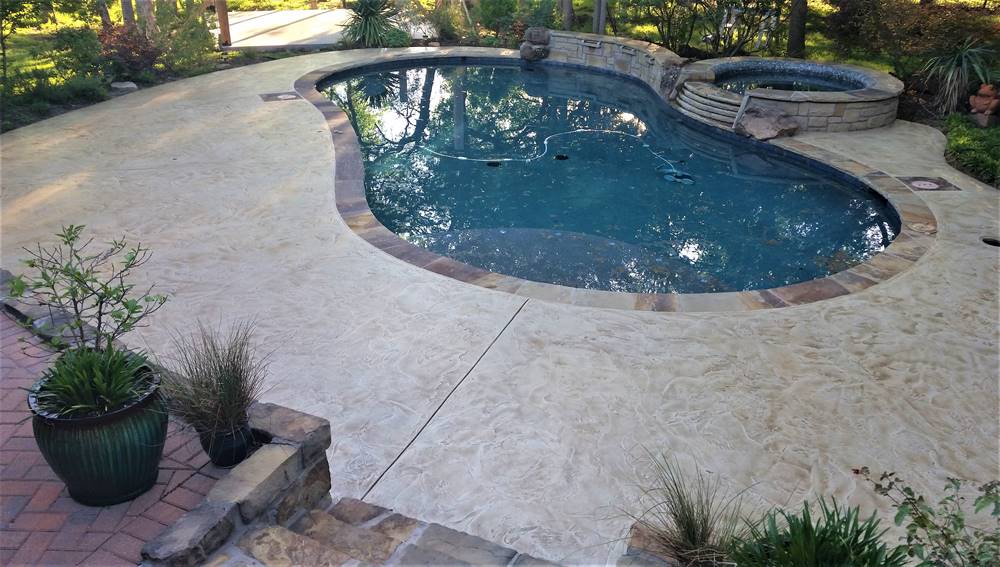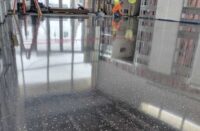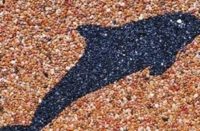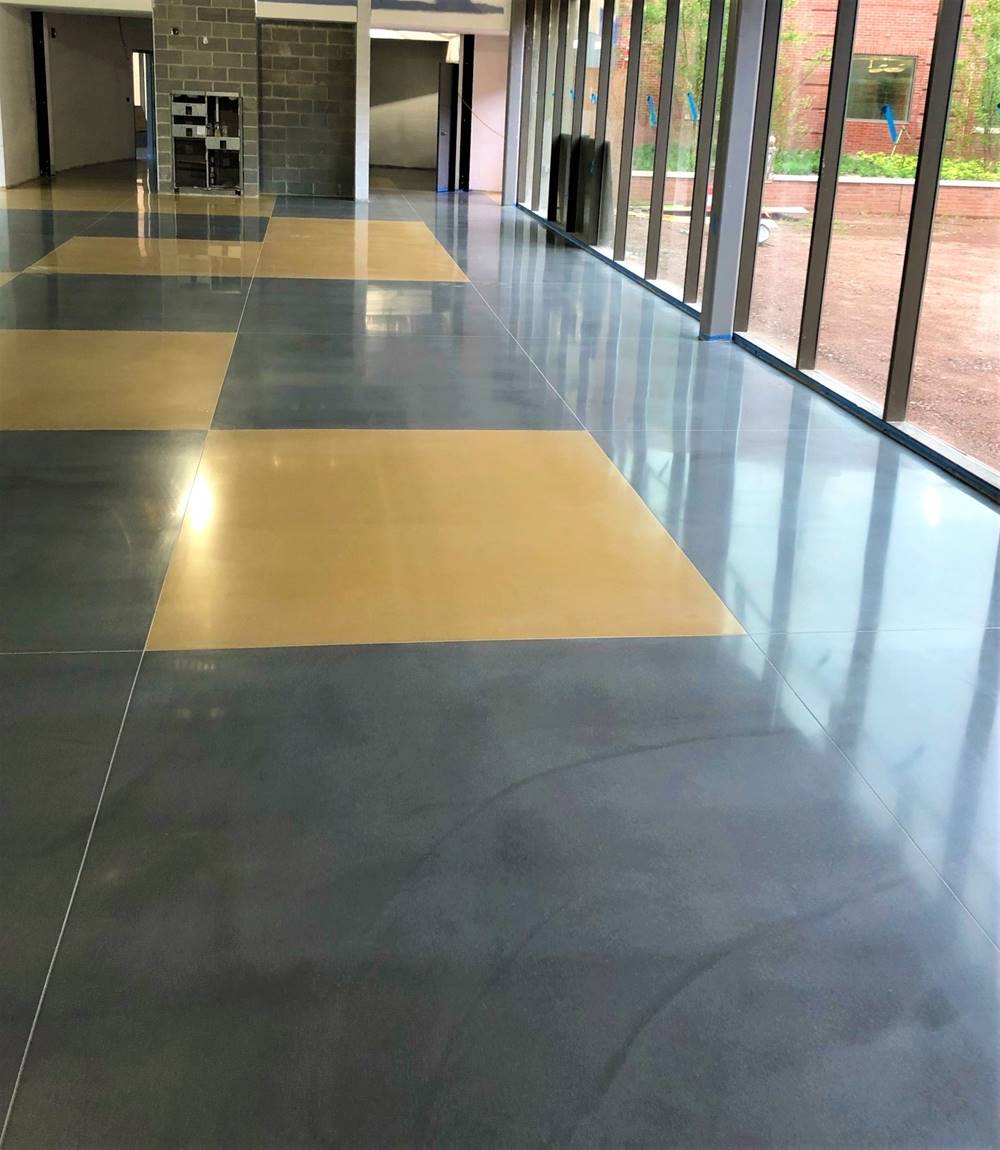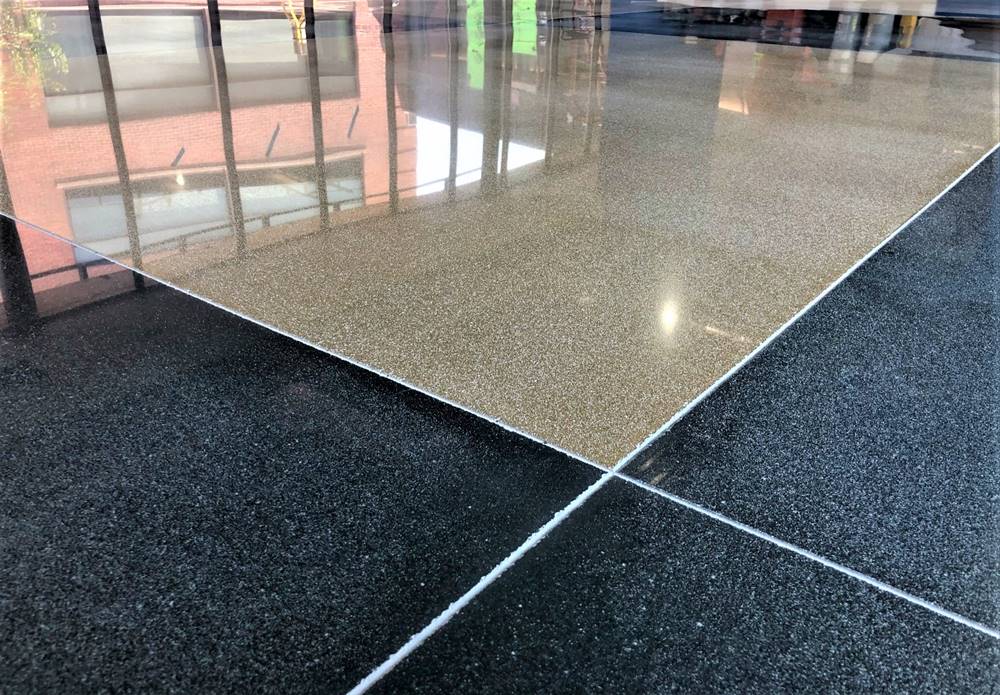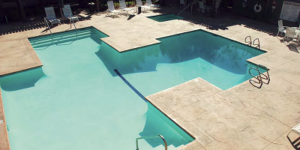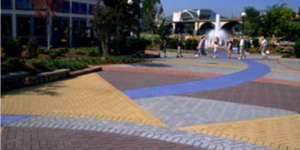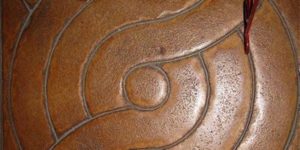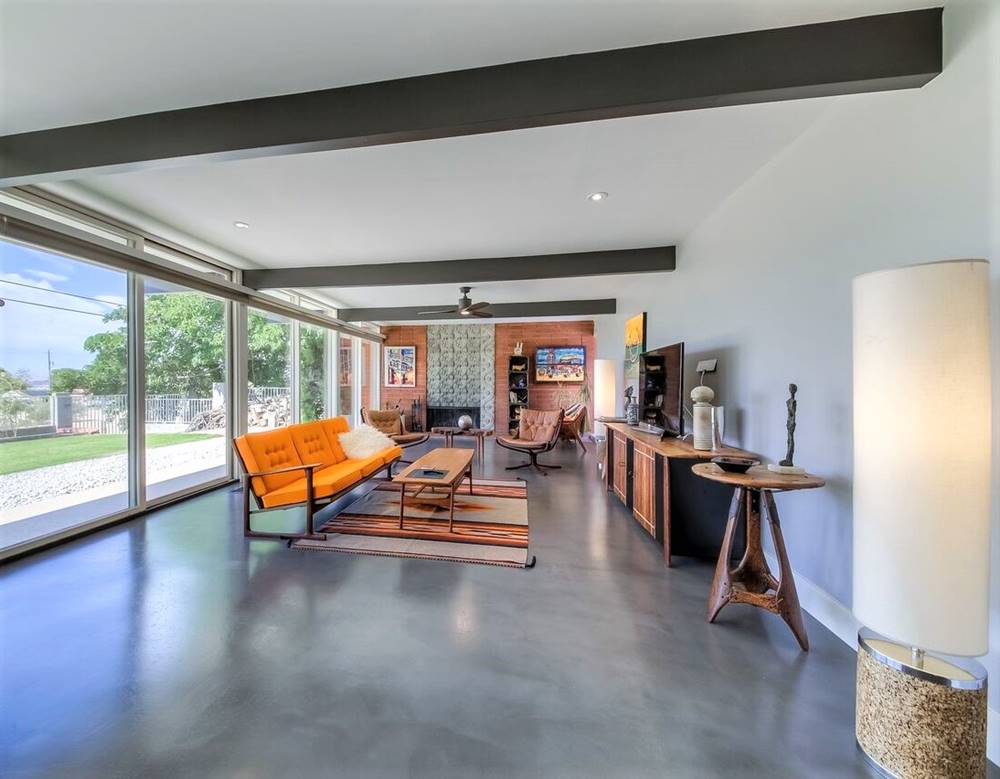
Any baker can tell you that a good frosting hides a multitude of sins when it comes to cakes. The same holds true with overlays on a concrete slab.
The evolution of toppings and coatings has arrived as the public embraces the idea of fixing existing concrete. Whether for a pool deck damaged by sun, water and active feet or a living room floor hidden for years under carpet or tile, these products can provide a fresh canvas on which experienced contractors can work their magic.
Also known as overlays or resurfacers, they can fill the bill for residential projects or something much larger.
Looks as good as new
Mike McAnulty, owner of Las Vegas-based Vegas Hardscape, refers to a residential floor job he recently quoted. Before the owner had it stripped, the original concrete had various treatments including wood, tile and carpet.
“Now, he wants a new industrial, polished concrete look,” says McAnulty. “We’re going to do some diamond grinding and put down a vapor barrier. Then we’re going to pour a self-leveler, which in this case is the Westcoat TC-27, a polishable concrete topping. Then we’ll seal it and the client will have a brand-new looking floor.”
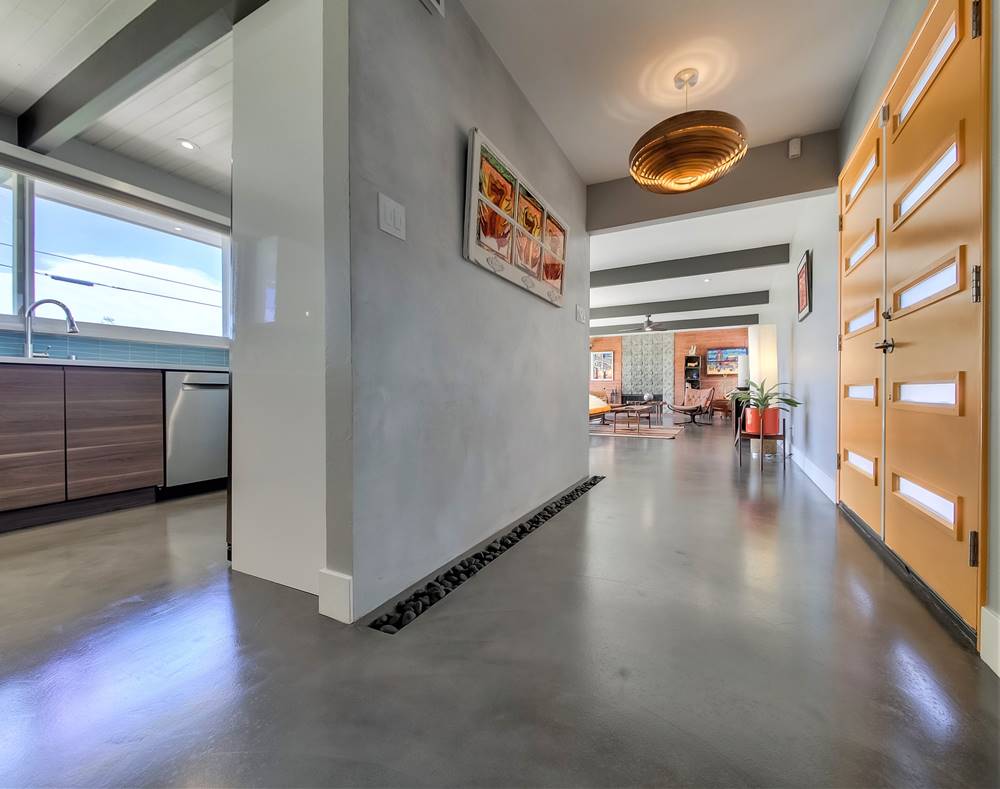
When gray will do
At Elegant Concrete Polishing in New Haven, Connecticut, co-owner Austin Morrison says his company began with residential jobs. As it gained experience, the client list expanded beyond homeowners. Consequently, today he uses overlays for both new and existing concrete in private homes and public facilities.
Morrison tells the story of a school project his company had bid on to polish. For the polished concrete areas, the design team wanted to use white cement. However, other parts of the building called for a regular type II gray cement.
“We had a working relationship with the architect, and they called us because we were bidding on the polishing,” Morrison says. “The contractors were scratching their heads. They wondered how to do it because it was going to take a lot of white cement.”
Consequently, they suggested nixing the white cement all together. “We told them they could pour the regular type II gray cement and we’d put a topping over it.”
He adds that by pouring the regular type II gray, the client saved money. Part of the savings, in turn, paid for the Rapid Set TRU topping from CTS Cement.
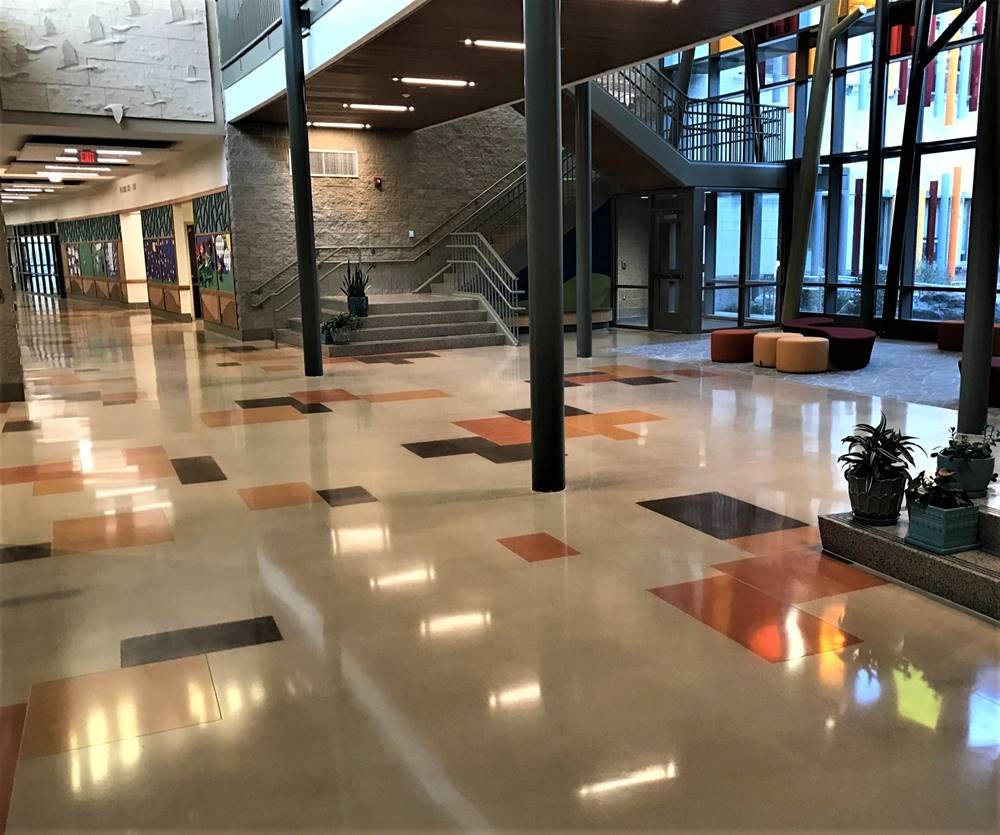
Many variables involved
In Crowley, Texas, Kenny Pattillo, owner of Concrete Cosmetics, also started doing residential work but expanded into commercial ventures. In addition to schools, his overlay work extends outdoors, too.
There, he says, a 4,000-psi power washer with a roto tip will often suffice peeling back the top of concrete. If old or worn, the concrete may need some surface grinding and crack repair, as well.
“There are a lot of variables involved,” he says. “We just did a 600-square-foot patio with a flagstone pattern and it only took two days.”
Soon, however, the company will undertake a pool deck remodel that involves grinding the concrete deck next to the coping around the entire pool. Plus, they have to fix a lot of cracks and replace joints. That job, he says, will take a whole week.
Pattillo frequently uses McKrete from McKinnon Materials for his overlay jobs. He says he began working with Ken McKinnon’s father 30+ years ago. Subsequently, he developed a good relationship with his son that continues today.
“Every industry has technology, and our technology has continued to grow, just like the rest of the world,” he says. “Keeping up-to-date with everything is one good way to find out about all the good products out there. And the bad ones.”
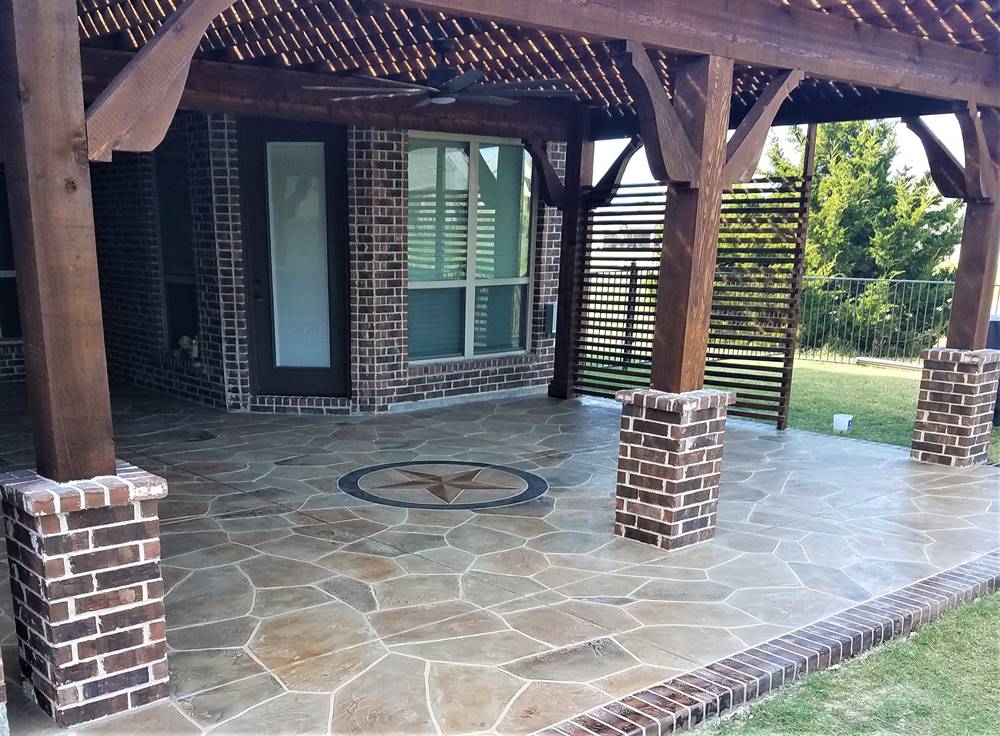 |
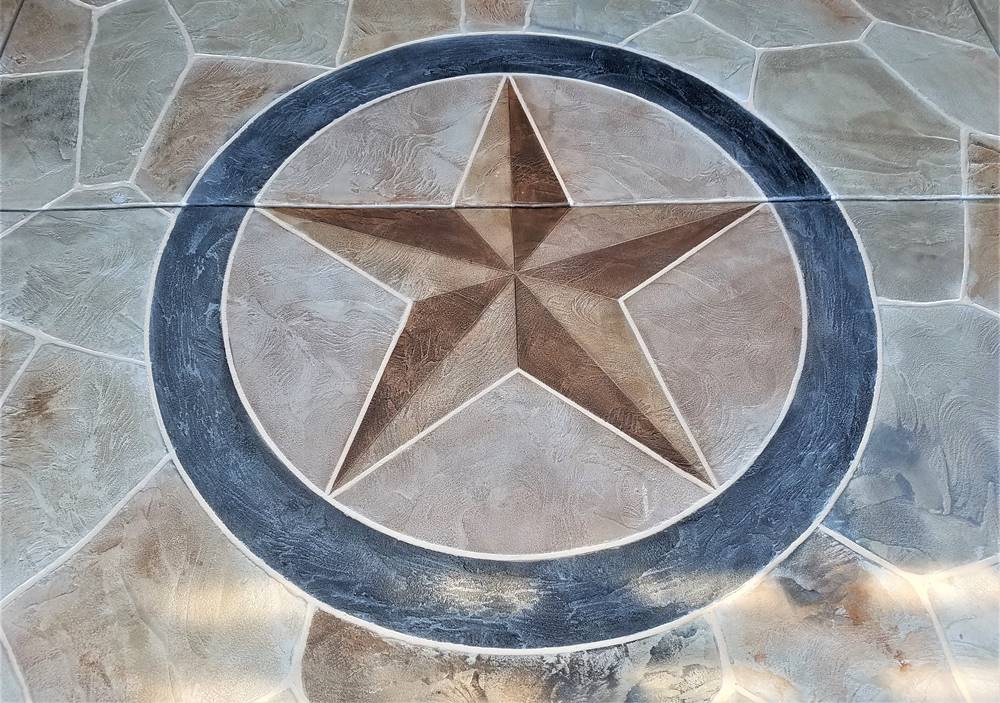 |
Technology contributes to versatility
McAnulty has also found a good market outdoors. Recently, he completed a pool deck for a school in which he used Westcoat’s Texture-Crete Solar Reflective Finish System. The system helps reduce the urban heat island effect and can lower the surface temperature.
As a contractor, he agrees with Pattillo about how the changing technology of coatings today and what contractors can achieve with them has contributed to the industry’s versatility. Consequently, he strives to offer assorted services to his clients who constantly request new looks in lieu of traditional ones.
“The market constantly changes,” McAnulty observes. “Of course, some guys only do epoxies or just do urethane (modified concrete) in kitchens. We don’t limit ourselves to just one application. We’ve got three pool decks going on this week. Next week we’re doing a carwash, a Mexican restaurant and an interior self-leveler where we’re back to polished concrete.”
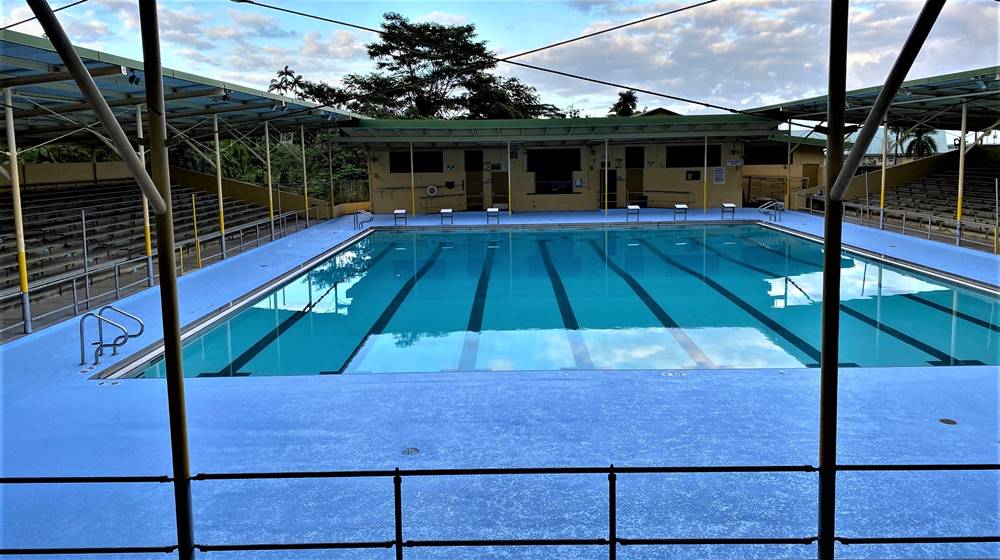
Morrison, too, says how the technology for these products has evolved and improved over time continually impresses him. He says a mentor first introduced him to CTS Cement’s Rapid Set family of products about a dozen years ago. Subsequently, he’s made the acquaintance of both the company’s flooring group specialist and his local rep.
“I feel like we helped but a lot of contractors tried it, did the work and gave feedback,” he says. “Today, it’s a proper system with myriad options and it’s cool to see where it’s come. It’s especially cool to know we can pour TRU by 3 or 4 in the afternoon and the next morning I can wheel out a 1,300-pound machine and start grinding.”
Built to last
The bottom line with these overlays is that they’re built to last.
“As a concrete surface, it wears really, really well,” says Pattillo. “If you do your prep work, it’s not going anywhere. If the customer wants to change it, you either have to cover it up or grind it off.”
Of course, it helps if you seal and maintain an overlaid surface. And, all these contractors agree, it helps to discuss maintenance with clients before leaving a job — or even before beginning.
“Just use the right sealer for the right environment,” concludes McAnulty. “Don’t skimp. And if you’re unsure, there’s a rep who will help with that regardless of the manufacturer.”
www.westcoat.com
www.mckinnonmaterials.com
www.ctscement.com
